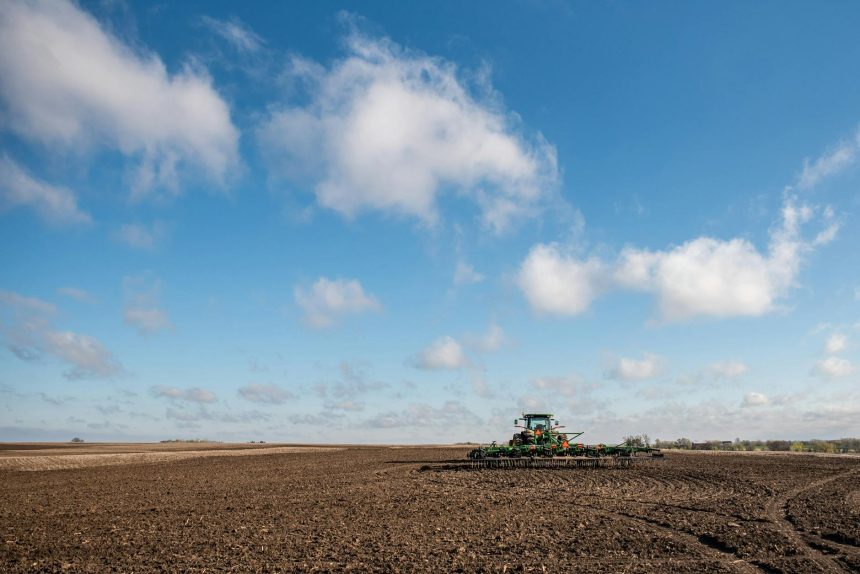crop-insurance
Crop Insurance 2025: Maximize Your Farm’s Future & Profits!
Farming is a profession of passion, hard work, and inherent risks. From unpredictable weather patterns to volatile market prices, agricultural producers face a myriad of challenges that can impact their livelihoods. This is precisely why understanding and optimizing your crop insurance coverage is not just an option, but a critical component of a resilient farming operation. As we look towards 2025, new developments and insights are emerging that can significantly influence how you protect your most valuable assets.
Why Crop Insurance is Crucial for Modern Farmers
The agricultural landscape is constantly evolving. Climate change brings more extreme weather events, and global economic shifts can dramatically alter commodity markets overnight. Without adequate protection, a single bad season could jeopardize years of effort and investment. Crop insurance acts as a vital safety net, providing financial stability when the unexpected occurs.
Understanding Agricultural Risk Management
Effective risk management goes beyond simply planting and harvesting. It involves strategic planning to mitigate potential losses from natural disasters, pests, diseases, and market fluctuations. Farmers who proactively manage these risks are better positioned to weather downturns and ensure the long-term viability of their operations. This proactive approach often begins with a thorough evaluation of available insurance products.
Key Changes & Updates for Crop Insurance in 2025
As the agricultural sector adapts, so too do the policies and programs designed to support it. The 2025 season is expected to bring refinements to existing crop insurance offerings, potentially introducing new coverage options, adjusted premium rates, or revised eligibility requirements. Staying informed about these updates is paramount for making sound financial decisions for your farm.
Navigating Policy Options: Yield vs. Revenue Protection
Choosing the right policy depends on your specific needs and risk tolerance. Two primary types of coverage dominate the landscape:
- Yield Protection (YP): This policy insures against a loss of production due to natural causes. If your actual yield falls below your insured yield, you receive an indemnity based on a projected price.
- Revenue Protection (RP): This is a more comprehensive option, insuring against both a loss of yield and a decline in market price. It guarantees a certain amount of revenue per acre, providing coverage if either yield or price (or both) fall below expected levels.
Understanding the nuances of each, and how they interact with your specific farming practices, is crucial. Resources like the USDA Risk Management Agency offer detailed information on various policy types.
Expert Insights from Nebraska Extension & UNL
Institutions like the University of Nebraska-Lincoln (UNL) and its Extension services play a pivotal role in disseminating crucial information to producers. Their Department of Agricultural Economics frequently analyzes policy changes and market trends, translating complex data into actionable advice for farmers. Workshops and educational events, often hosted by these organizations, provide invaluable opportunities to engage with experts and understand the practical implications of new policies.
Strategies to Optimize Your Crop Insurance Coverage
Simply purchasing a policy isn’t enough; maximizing its value requires a strategic approach. This involves careful consideration of your farm’s unique profile, historical data, and future projections. The goal is to secure comprehensive protection without incurring unnecessary costs.
Calculating Your Optimal Coverage Levels
Determining the ideal coverage level is a balance between risk and cost. Here’s a simplified approach:
- Review Historical Yields: Analyze your farm’s actual production records over several years to establish an accurate Actual Production History (APH).
- Assess Financial Exposure: Understand the potential financial impact of a significant yield or revenue loss on your operation.
- Compare Policy Options: Evaluate different coverage levels and premium costs for both Yield and Revenue Protection policies to find the best fit.
- Consult an Expert: Work with a qualified crop insurance agent or agricultural economist to tailor a policy that meets your specific needs and budget.
Leveraging Educational Workshops for Producers
Attending specialized workshops is one of the most effective ways to stay ahead. These events often feature in-depth discussions on policy changes, risk management strategies, and new technologies. They also provide excellent networking opportunities with peers and industry professionals. For example, academic programs often share valuable research, as seen on platforms like farmdoc daily, which provides current analysis on agricultural economics.
Conclusion: Secure Your Farm’s Tomorrow
Navigating the intricacies of crop insurance in 2025 requires diligence, education, and strategic planning. By staying informed about policy updates, understanding your coverage options, and proactively engaging with educational resources, you can fortify your farm against the inherent uncertainties of agriculture. Don’t wait for uncertainty to strike. Explore the upcoming educational opportunities and secure your farm’s future today!
Navigating 2025 crop insurance updates is key for farm profitability. Learn strategies for yield and revenue protection, understand policy changes, and access expert insights to secure your agricultural future.
farmer looking at crops with insurance documents
Featured image provided by Pexels — photo by Rachel Meiergerd








